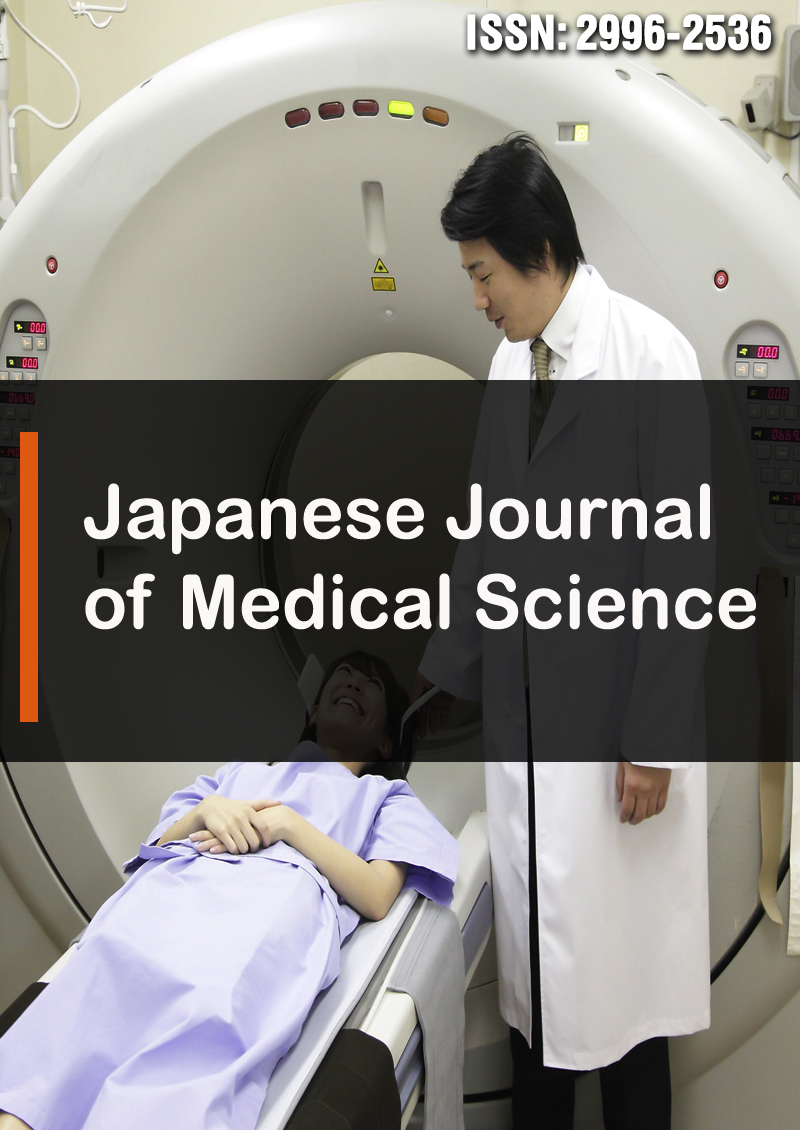Aims and Scope
Journal DOI: 10.33140/JJMS
The Japanese Journal of Medical Science stands as a lighthouse illuminating the vast expanse of medical exploration. Our primary objective is to cultivate a thriving ecosystem of knowledge sharing, innovation, and collaborative progress within the realm of medical science. Encompassing a panoramic vista of medical disciplines, our journal embraces, nurtures, and propagates advancements in:
Clinical Medicine: Pioneering diagnostic methods, therapeutic interventions, and patient- centered care approaches to elevate the quality of medical treatment.
Basic Medical Sciences: Unearthing the fundamental building blocks of life, disease etiology, and molecular intricacies that underscore medical phenomena.
Medical Technology and Innovation: Celebrating the integration of technology into medical practice, where artificial intelligence, robotics, and precision medicine converge.
Epidemiology and Public Health: Forging a path toward eradicating diseases, improving global health, and understanding the intricate dance between health and society.
Healthcare Management and Policy: Shaping the healthcare landscape through thought- provoking insights into policy formulation, resource allocation, and healthcare administration.
We beckon researchers, scholars, and healthcare vanguards to contribute to this tapestry of knowledge and discovery. The Japanese Journal of Medical Science is not merely a repository of information; it's a stage upon which the symphony of medical progress resonates.
We extend an open invitation to researchers across the globe to contribute to our journal, fostering a collaborative spirit that transcends disciplinary boundaries and enriches medical scholarship.
Some of the subject areas that the journal focuses on include:
|
Pharmaceutical development |
Medical devices |
Immunology |
|
Natural products in medicine |
Biomarkers |
Neurology |
|
Herbal medicine |
Health assessment |
Cardiology |
|
Nutraceuticals |
Health monitoring |
Oncology |
|
Medical nanotechnology |
Disease prevention |
Gastroenterology |
|
Medical imaging modalities |
Healthcare management |
Endocrinology |
|
Radiologic technology |
Health informatics |
Infectious diseases |
|
Nuclear medicine |
Biobanking |
Pediatrics |
|
Ultrasound imaging |
Drug discovery |
Geriatrics |
|
Magnetic resonance imaging (MRI) |
Radiography |
Surgery |
|
Computed tomography (CT) |
Medical physics |
Anesthesiology |
|
Positron emission tomography (PET) |
Epidemiological studies |
Radiology |
|
Medical data privacy |
Health promotion |
Nephrology |
|
Health information systems |
Health economics |
Dermatology |
|
Health record management |
Health systems |
Psychiatry |
|
Health informatics standards |
Health services |
Rehabilitation |
|
Medical coding |
Translational research |
Regenerative medicine |
|
Data interoperability |
Anatomy |
Stem cell research |
|
Health data security |
Physiology, |
Drug development |
|
Health information exchange |
Rehabilitation therapy |
Precision medicine |
|
Telemedicine regulations |
Biochemistry |
Bioinformatics |
|
Remote patient monitoring |
Microbiology |
Nanomedicine |
|
Virtual reality in healthcare |
Virology |
Telemedicine |
|
Augmented reality in medicine |
Autoimmune diseases |
Global health |
|
Bioethics |
Infectious disease transmission |
Medical education |
|
Ethical considerations in research |
Neurodegenerative disorders |
Medical ethics |
|
Informed consent |
Cardiovascular diseases |
Healthcare policy |
|
Medical law |
Cancer research |
Health disparities |
|
Biosecurity |
Inflammatory disorders |
Clinical trials |
|
Disaster medicine |
Pain management |
Case studies |
|
Emergency medical services |
Surgical techniques |
Complementary therapies |
|
Trauma care |
Organ transplantation |
Rehabilitation medicine |
|
Palliative care |
Obesity |
Neuropsychology |
|
Hospice care |
Diabetes |
Radiology techniques |
|
Pain management |
Respiratory diseases |
Diagnostic imaging |
|
Strategies |
Vaccination |
Radiopharmaceuticals |
|
Psychopharmacology |
Mental health |
Precision oncology |
|
Psychotherapy |
Cognitive disorders |
Interventional cardiology |
|
Cognitive-behavioral therapy |
Palliative care |
Minimally invasive surgery |
|
Mindfulness-based interventions |
Reproductive health |
Neurosurgery |
|
Mental health stigma |
Women’s health |
Orthopedic surgery |
|
Child psychiatry |
Men’s health |
Robotic surgery |
|
Adolescent medicine |
Aging research |
Medical robotics |
|
Geriatric psychiatry |
Stem cell therapy |
Medical simulation |
|
Neuropsychiatry |
Pharmacogenomics |
Anesthesia techniques |
|
Psycho-oncology |
Health behavior |
Clinical research methodologies |
|
Addiction medicine |
Lifestyle interventions |
Health policy analysis |
|
Substance abuse treatment |
Healthcare delivery |
Health economics |
|
Medical rehabilitation techniques |
Medical imaging technologies |
Health disparities |
|
Physical therapy |
Artificial intelligence in medicine |
Global health initiatives |
|
Medical research |
Digital health |
Environmental health |
|
Health sciences |
Wearable health devices |
Occupational health |
|
Clinical studies |
Telehealth |
Personalized medicine |
|
Medical advancements |
E-health |
Pharmacology studies |
|
Healthcare innovations |
Health data analytics |
Drug safety |
|
Biomedical research |
Patient outcomes |
Clinical pharmacology |
|
Disease management |
Patient safety |
Drug interactions |
|
Diagnostic techniques |
Hospital management |
Drug delivery systems |
|
Therapeutic interventions |
Medical education strategies |
Patient care |
|
Public health |
Clinical guidelines |
Health technology |
|
Epidemiology |
Preventive medicine |
Health psychology |
|
Medical imaging |
Healthcare communication |
Integrative medicine |
|
Genetics |
Health education |
Traditional medicine |
|
Molecular biology |
Pharmacology |
Pathology |



